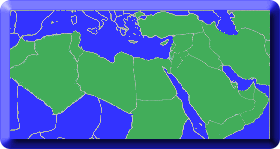
Topics in Middle Eastern and North African Economies
The Relationship between Political Stability and Portfolio Investments: The Case of Turkey 2007-2020
Document Type
Article
Publication Date
5-1-2021
Journal Title
Topics in Middle Eastern and North African Economies
Volume
23
Issue
1
Publisher
Middle East Economic Association and Loyola University Chicago
Abstract
The collapse of the gold-based monetary system in the early 1970s and the increase in oil prices due to the Arab-Israeli War designated the beginning of a new era. With the collapse of the monetary system, the rapid volatility of money values and interest rates increased the uncertainty and encouraged investors to buy commodities, especially gold, in order to protect themselves. The oil war caused commodity prices to increase more. Cost-driven inflation and recession, which means stagflation, left its mark on the era. Keynesian policies, which were seen as responsible for the case of stagflation, had been replaced by the neo-liberal approach. Financial liberalization discussions are also the result of this period. It has been argued by McKinon & Shaw that financial liberalization will stimulate the squeezed real sector and support economic growth. Government controlled interest rates, credit controls, financial sector entry barriers, state control over the banking sector, state ownership of banks and restrictions on capital flows were identified as elements of financial pressure (Williamson and Mahar, 1998). Financial liberalization had also been accepted as one of the basic reform strategies of developing economies in the globalization process. With the adoption of neo-liberal policies, which became the dominant ideology for both developed and developing countries, the mobility of capital between countries had also started to increase. Among the capital movements, especially portfolio investments had come into prominence during this period, and many countries released capital movements. In 1989, Turkey had also released all kinds of capital movements and had come across foreign currency positions with the Decree Law No. 32.
ISSN
2334-282X
Recommended Citation
Uzunoğlu, Sadi; Özdurak, Caner; and Dursun, Serap, "The Relationship between Political Stability and Portfolio Investments: The Case of Turkey 2007-2020". Topics in Middle Eastern and North African Economies, electronic journal, 23, 1, Middle East Economic Association and Loyola University Chicago, 2021, http://www.luc.edu/orgs/meea/
Creative Commons License

This work is licensed under a Creative Commons Attribution-Noncommercial-No Derivative Works 3.0 License.
Copyright Statement
© The Author(s), 2021



Comments
Presentation of the articles in the Topics in Middle Eastern and North African Economies was made possible by a limited license granted to Loyola University Chicago and Middle East Economics Association from the authors who have retained all copyrights in the articles.